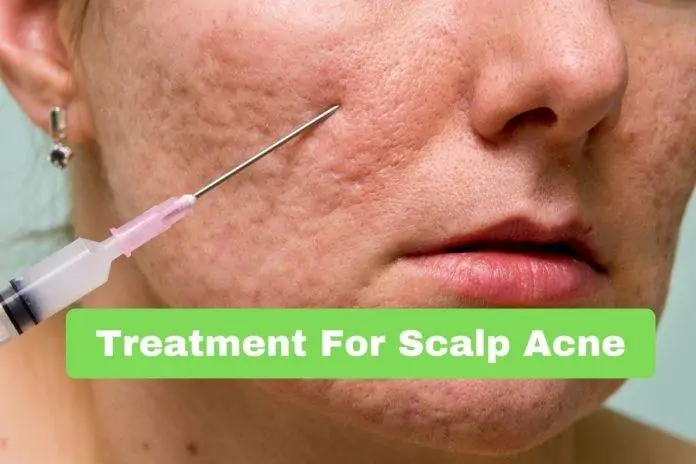If you are looking for a good treatment for scalp acne, you have come to the right place. There are a few things you can do to combat it, including the use of Salicylic acid, tomato juice, and even prescription treatments. However, there are also some things you should avoid. These include avoiding certain foods, as well as triggers for your skin.
Tomato juice
Tomato juice is known to be effective in reducing oiliness, shrinking pores, and minimizing redness. It can also help combat dandruff.
Tomatoes are rich in antioxidants, vitamin C, and lycopene. These nutrients can boost collagen production, increase skin elasticity, and improve cell regeneration. They can also protect the skin from sun damage.
Tomato juice can be applied to the scalp to treat acne. Leaving the juice on for a short period of time can help dry out and reduce redness in the skin. If you have inflamed spots, you may want to apply it more than once a day.
You can make a face mask out of tomato pulp. This can be used to refresh the skin, repair uneven skin tone, or even to heal sunburned skin. For best results, leave the pulp on for at least 15 minutes.
Salicylic acid
Salicylic acid is a chemical exfoliant that can help alleviate the pain and irritation of scalp acne. It works by removing dead skin cells and waxy sebum from the surface of the skin. This helps clear up whiteheads and blackheads.
You can apply salicylic acid to your scalp in a shampoo. Apply the shampoo on your hair and scalp, work it into a lather, and then rinse it off. Be sure to do this at least two times a week.
While salicylic acid can be a useful treatment for scalp acne, you should also be aware of potential side effects. Salicylic acid can cause a stinging sensation on your scalp, and it may also irritate the eyes. If your scalp becomes irritated, you should discontinue use of the product and talk to your doctor.
Dandruff
Dandruff is a skin condition that can lead to scalp acne. It is caused by a mixture of dead skin cells and oil. This clogs the pores of the hair follicles. These clogged pores will produce blackheads, whiteheads and inflamed pimples.
There are a number of ways to treat dandruff. The best way is to use an anti-dandruff shampoo. Anti-dandruff shampoos are made from ingredients that can help remove dead skin cells and break down sebum, which is the natural oil that the sebaceous glands produce.
Some of the key ingredients in an anti-dandruff shampoo include retinoids and salicylic acid. However, it is important to remember that these products can cause an allergic reaction or worsen dandruff. Therefore, it is best to seek out a dandruff-fighting product from a dermatologist.
Prescription treatments
If you have scalp acne, there are treatments that can help you. You can try over-the-counter or prescription medications. However, it’s a good idea to consult a dermatologist for advice. They can recommend a treatment plan and suggest the best products for you.
Scalp acne is a skin condition that can cause painful bumps and cysts. It can also result in scarring. In addition, it can damage your self-esteem.
Scalp acne is caused by a build-up of oil in the hair follicles. These clogged pores can lead to inflammation and pimples. Dermatologists use topical or oral antibiotics to clear up acne.
Medicated shampoos can also help treat acne. These contain ingredients such as sulfur, cortisone, and salicylic acid. The chemicals can help break up dead skin cells, unclog pores, and kill bacteria that cause acne.
Avoiding triggers
When it comes to scalp acne, avoiding triggers is the best way to get clear skin. There are many ways to achieve this. The most important is to find the right products and habits to reduce the chances of breakouts.
For example, you can use a clarifying shampoo to remove product build up. Also, be sure to wash your hair every time it feels oily.
Another good idea is to avoid wearing hats or headgear on a regular basis. These items can be a huge contributing factor to scalp acne. Tight fitting hats can also lead to gunky buildup.
It’s important to take the time to learn about the different types of scalp acne and what can cause them. A dermatologist can help you diagnose your condition and prescribe the best products.




